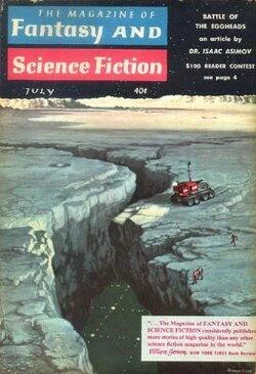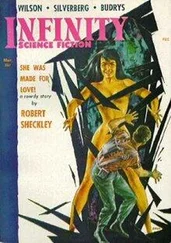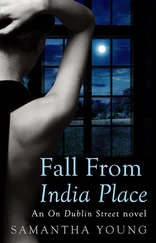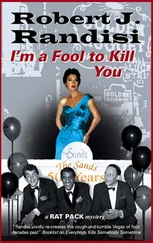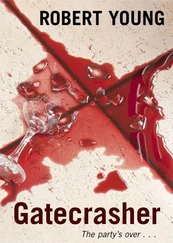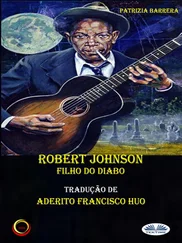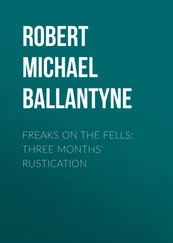Robert Young - To Fell a Tree
Здесь есть возможность читать онлайн «Robert Young - To Fell a Tree» весь текст электронной книги совершенно бесплатно (целиком полную версию без сокращений). В некоторых случаях можно слушать аудио, скачать через торрент в формате fb2 и присутствует краткое содержание. Год выпуска: 1959, Издательство: Mercury Press, Inc., Жанр: Фантастика и фэнтези, на английском языке. Описание произведения, (предисловие) а так же отзывы посетителей доступны на портале библиотеки ЛибКат.
- Название:To Fell a Tree
- Автор:
- Издательство:Mercury Press, Inc.
- Жанр:
- Год:1959
- ISBN:нет данных
- Рейтинг книги:5 / 5. Голосов: 1
-
Избранное:Добавить в избранное
- Отзывы:
-
Ваша оценка:
- 100
- 1
- 2
- 3
- 4
- 5
To Fell a Tree: краткое содержание, описание и аннотация
Предлагаем к чтению аннотацию, описание, краткое содержание или предисловие (зависит от того, что написал сам автор книги «To Fell a Tree»). Если вы не нашли необходимую информацию о книге — напишите в комментариях, мы постараемся отыскать её.
To Fell a Tree — читать онлайн бесплатно полную книгу (весь текст) целиком
Ниже представлен текст книги, разбитый по страницам. Система сохранения места последней прочитанной страницы, позволяет с удобством читать онлайн бесплатно книгу «To Fell a Tree», без необходимости каждый раз заново искать на чём Вы остановились. Поставьте закладку, и сможете в любой момент перейти на страницу, на которой закончили чтение.
Интервал:
Закладка:
Strong looked at his watch. “I doubt it, Mr. Wright.”
“If you can, fine. If you can’t, we’ve got all day tomorrow. Just don’t take any chances, Mr. Strong.”
The first fifty-footer nosed into the black soil of the square, paused a moment, then toppled on its side. The second followed in its wake—
And the third and the fourth—
It was funny, Strong thought, the way physical activity kept everything sane and in place. He found it hard to believe now that less than half an hour ago he had been looking for a dryad. That less than twenty-four hours ago he had been talking to one…
And the fifth and the sixth—
On the seventh, his pace began to slow. He was nearing the half-way mark and the diameter of the trunk had increased to nearly thirty feet. Snubbing himself to it was no longer possible, to get into topping position, he had to drive tree-pegs and run his improvised safety-belts through the slot in their end. But the slower pace gave Suhre and Blueskies a chance to cut the increasingly larger sections into suitable dimensions for the carriers. They had fallen behind; now they were beginning to catch up. The colonists, according to Wright, had given up hope of salvaging the wood and were piling it in a cleared area well away from the mill, preparatory to burning it.
Earlier in the afternoon a wind had sprung up. Now it began to die. The sun grew hotter; the tree “bled” more and more. Strong kept glancing down into the square. With its red-tinted grass and stub-gored sod, it had some of the aspects of a charnel house; but he was hungry for the feel of earth beneath his feet, and even “blood”-stained ground looked good to him.
He squinted repeatedly at the sun. He’d been in the tree nearly three days now, and did not relish spending another night in its branches. Or rather, in its stubs. But he had to admit after he finished the final fifty-footer, that he was going to have to. By then the sun was almost out of sight beyond the Great Wheat Sea, and he knew he couldn’t possibly drop even the first hundred-footer before darkness fell.
The lowest stub upon which he now stood was roomy enough for twenty tree-tents. Wright cable-cast over it (the lift had been lowered earlier in the afternoon, and the winch-cable reeled in), and sent up his supplies and supper. Supper turned out to be another of the mayor’s special plates. After setting up his tree-tent, Strong picked at the food indifferently; his appetite of yesterday was gone.
He was so tired that he didn’t even wash—though Wright had sent up soap and water, too—and when he finished eating, he lay back on the coarse bark and watched the silver rising of the moons and the pale whispering into life of the stars. This time when she came, she tiptoed up and sat down beside him and gazed into his face with her blue sad eyes. The whiteness of her skin shocked him, and the thinness of her cheeks made him want to cry.
I looked for you this morning, he said. I couldn’t find you. Where do you go when you disappear?
Nowhere, she said.
But you must go somewhere.
You don’t understand, she said.
No, he said. I guess I don’t. I guess I never will.
Yes you will, she said. Tomorrow you’ll understand. Tomorrow will be too late.
Tonight is too late. Yesterday was too late. It was too late before you even climbed into the tree.
Tell me, he said. Are you a member of the race that built the village?
In a way, she said.
How old are you?
I don’t know, she said.
Did you help to build the village?
I built the village alone.
Now you’re lying, he said.
I never lie, she said.
What happened to the original race?
They grew up. They ceased to be simple. They became complex and sophisticated, civilized. And as they became civilized, they began ridiculing the customs of the ancestors as being all ignorance and superstition, and they set up new customs. They made things of iron and bronze, and it took them less than one hundred years to destroy an ecological balance that not only had helped to keep them alive but had supplied them with a reason to live—a reason so strong that it was almost a life-force. When they discovered what they had done, they were horrified; but they made the discovery too late.
And so they died?
You’ve seen their villages.
Yes, I’ve seen their villages, he said. And I’ve read in the Advance Team’s report about the death-caves in the northern barrens into which they crawled with their children to die. But what about this village? They could have saved this one in the same way we are by removing the tree.
She shook her head. You still don’t understand, she said. In order to receive, one must also give: that was the law they broke. Some of them broke it sooner than others, but eventually all of them broke it and had to pay the penalty.
You’re right, he said. I don’t understand.
Tomorrow you will. Tomorrow everything will be clear.
Last night you tried to kill me, he said. Why?
I didn’t try to kill you. You tried to kill yourself. Today was when I tried to kill you.
With the limb?
With the limb.
But how?
It doesn’t matter. All that matters is, I didn’t. Couldn’t.
Where will you go tomorrow?
Why should you care where I go?
I do.
You couldn’t possibly be in love with me.
How do you know I couldn’t be?
Because—Because—
Because I don’t think you’re real?
You don’t, do you? she said.
I don’t know what to think, he said. Sometimes I think you are, some times I think you aren’t.
I’m as real as you are, she said. Though in a different way.
He reached up abruptly, and touched her face. Her skin was soft and cold. As cold as moonlight, as soft as a flower. It wavered before his eyes; her whole body wavered. He sat up, turned towards her. She was light and shadow, leaf and flower; the scent of summer, the breath of night. He heard her voice. It was so faint he could hardly make out her words: You shouldn’t have done that. You should have accepted me for what I was. Now you’ve spoiled it. Now we must spend our last night together, alone.
So you weren’t real after all, he said. You were never real. No answer.
But if you weren’t real, I must have imagined you, he said. And if I imagined you, how could you tell me things I didn’t know?
No answer.
He said: You make what I’m doing seem like a crime. But it isn’t a crime. When a tree becomes a menace to a community, it should be removed.
No answer.
Just the same, I’d give anything if it didn’t have to be this way, he said.
Silence.
Anything at all.
The space beside him remained empty. He turned, finally, and crawled into his tent and drew his campfire in after him. His tiredness had turned him numb. He fumbled with his blankets with numb fingers, wrapped them around his numb body. He drew up his numb knees and hugged them with his numb arms.
“Anything at all,” he murmured. “Anything at all…”
The Fourth Day
Sunlight seeping through the tent-wall awoke him. He kicked free of his blankets and crawled out into the morning. He saw no scarlet winging of hahaha birds; he heard no morning birdsong. The tree was silent in the sunlight. Empty. Dead.
Читать дальшеИнтервал:
Закладка:
Похожие книги на «To Fell a Tree»
Представляем Вашему вниманию похожие книги на «To Fell a Tree» списком для выбора. Мы отобрали схожую по названию и смыслу литературу в надежде предоставить читателям больше вариантов отыскать новые, интересные, ещё непрочитанные произведения.
Обсуждение, отзывы о книге «To Fell a Tree» и просто собственные мнения читателей. Оставьте ваши комментарии, напишите, что Вы думаете о произведении, его смысле или главных героях. Укажите что конкретно понравилось, а что нет, и почему Вы так считаете.
